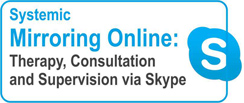Couples Therapy
 Conversations between partners can trigger explosive and painful emotions almost instantaneously. This is especially evident in difficult conversations which are impossible to bypass without emotions being addressed and managed on moment by moment basis. But even relatively emotionally neutral conversations can easily activate feelings that can fuel exchanges of blame, accusation, disconnection and hopelessness. As a result many couples decide not to talk, fearing that talking will make things worse. Instead, they hope that time will solve the relational problems. More often than not this doesn't work, the partners lose their ability to communicate, develop resentments and apathy.
Conversations between partners can trigger explosive and painful emotions almost instantaneously. This is especially evident in difficult conversations which are impossible to bypass without emotions being addressed and managed on moment by moment basis. But even relatively emotionally neutral conversations can easily activate feelings that can fuel exchanges of blame, accusation, disconnection and hopelessness. As a result many couples decide not to talk, fearing that talking will make things worse. Instead, they hope that time will solve the relational problems. More often than not this doesn't work, the partners lose their ability to communicate, develop resentments and apathy.
In the Systemic Mirroring approach we try to have the couple, from the very first session, experience how it can feel for them to be with each other without the painful emotions leading to disconnection and anger. To do so we focus on regulating feelings of anger, humiliation, loneliness and especially shame.
The relationship between shame and communication is very interesting and in many ways tragic. While the most useful ways to reduce shame are done through dialogue and talking, it is often through these efforts that we shame the other leading to continual reciprocal shaming cycles. Shame blocks the ability to communicate effectively. When a person experiencing shame tries to communicate his shame he will often do so in ways which either alienate or shame the other person.
According to the Systemic Mirroring approach couple fights and conflict are the clearest signs that the partners are not managing shame effectively and it is through these fights that we help partners give each other an opportunity to help regulate their shame. This leads to conversations in which partners can feel safe to admit feelings of being unloved, abandoned, controlled, not cared for, anger, disappointment and fear.
Having such conversations develops integrity, appreciation and intimacy. In such an environment the partners can look at their problems from a united stand point. This leads to a collaborative spirit, creative solutions, playfulness and a renewed interest in each other.
The Systemic Mirroring approach was developed by Dr. Uri Weinblatt and is characterized by it's ability to foster an environment of respect and cooperation between the therapist and the couple. The therapeutic atmosphere which is created is one that is both intimate and practical. Such an environment helps the couple engage in conversations which are very different from the frustrating conversations they are used to. This leads torapid changes in negative relational patterns, the re-building of trust, the taking ownership for harmful behaviors and a renewed sense of intimacy in the relationship.




Comments are closed.